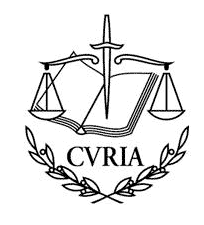 In 2007, Belgian internet service provider Scarlet Extended was ordered to install a filtering system to detect and block the sharing of files that violated copyrights managed by SABAM (a collection society). The case was appealed to the European Court of Justice, which ruled that the injunction was incompatible with EU law. In a press release, the Court said: “EU law precludes the imposition of an injunction by a national court which requires an internet service provider to install a filtering system with a view to preventing the illegal downloading of files. Such an injunction does not comply with the prohibition on imposing a general monitoring obligation on such a provider, or with the requirement to strike a fair balance between, on the one hand, the right to intellectual property, and, on the other, the freedom to conduct business, the right to protection of personal data and the freedom to receive or impart information.”
In 2007, Belgian internet service provider Scarlet Extended was ordered to install a filtering system to detect and block the sharing of files that violated copyrights managed by SABAM (a collection society). The case was appealed to the European Court of Justice, which ruled that the injunction was incompatible with EU law. In a press release, the Court said: “EU law precludes the imposition of an injunction by a national court which requires an internet service provider to install a filtering system with a view to preventing the illegal downloading of files. Such an injunction does not comply with the prohibition on imposing a general monitoring obligation on such a provider, or with the requirement to strike a fair balance between, on the one hand, the right to intellectual property, and, on the other, the freedom to conduct business, the right to protection of personal data and the freedom to receive or impart information.”
The European Internet Service Providers Association put out a statement welcoming the ruling, saying it “guarantees the protection under EU law of fundamental rights and the freedom of a network provider to conduct its business. Intellectual property rights should be respected but are not inviolable, and disproportionate technical enforcement that infringes on the rights of other is contrary to EU law.”
Documents from the European Court of Justice:
Statements and Press
- Euro ISPA Press Release. “Scarlet Extended Case: The European Court of Justice’s Clarification Will Foster Innovation and Growth.” November 24, 2011.
- David Meyer for ZDNet. “Courts cannot order ISPs to filter P2P, ECJ rules.” November 24, 2011.
- Enigmax for TorrentFreak. “European Court: ISPs Can’t Spy on Pirating Customers.” November 24, 2011.




